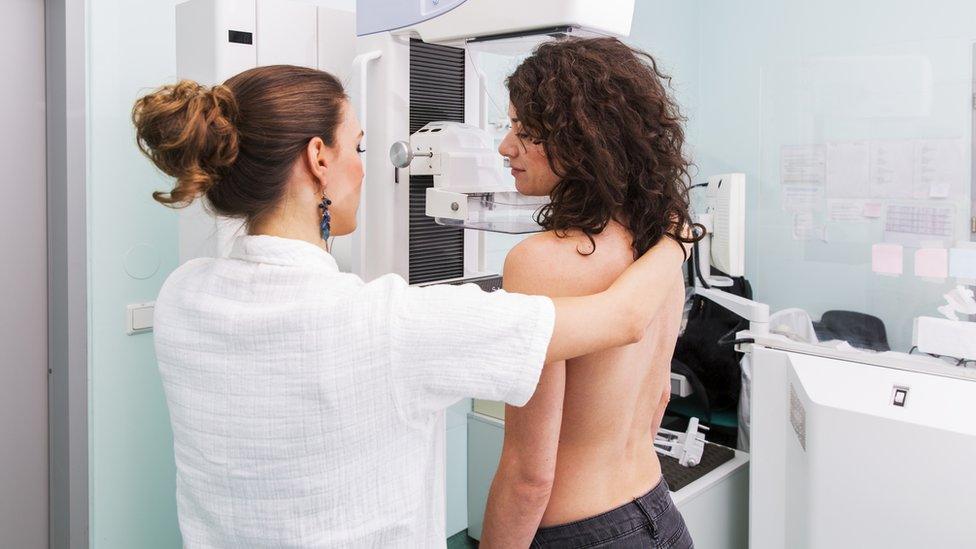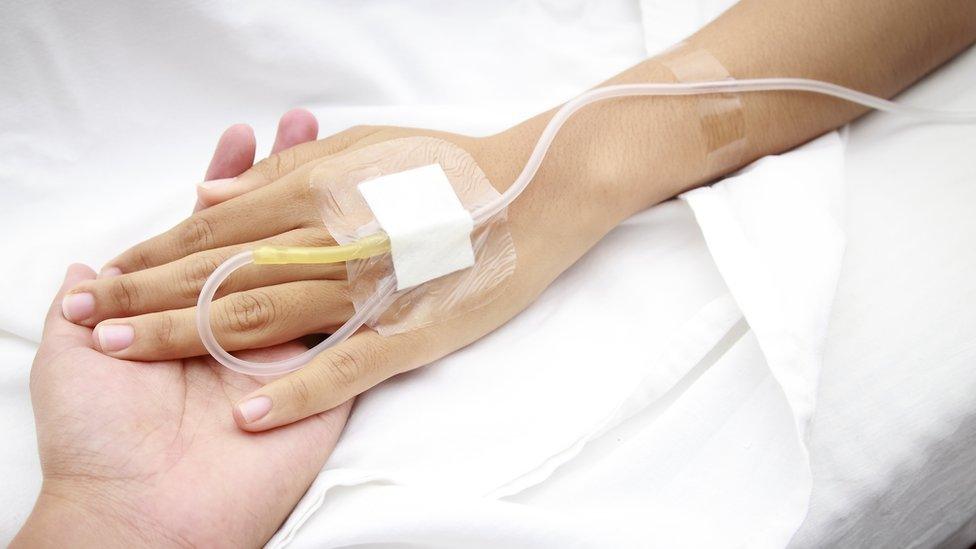Call for breast cancer chemotherapy dosage review
- Published

A Scotland-wide analysis of the effect of high and low chemotherapy doses on breast cancer should be undertaken in the wake of a row over treatment at NHS Tayside, according to an expert.
The health board was criticised after 304 breast cancer patients were given lower doses of chemotherapy than patients elsewhere in Scotland.
But Professor Mark Chaplain says there is international evidence to suggest lower dosages don't harm patients.
He said the data should be reviewed.
A health watchdog criticised how NHS Tayside lowered doses to 304 patients from December 2016, to reduce the side-effects of the medication.
Fourteen of those treated later died.
A series of reviews were carried out following the discovery, including one commissioned by the Scottish government which concluded Tayside's approach increased the risk of recurrence for one patient per year as a result and was judged as "being outwith best current practice, and close to being unacceptable".
But Prof Chaplain, who specialises in analysing mathematical models of cancer growth at the University of St Andrews, pointed to a study in Finland which compared the difference between low and high chemotherapy treatments for breast cancer and found no inferior outcomes for patients on the lower dosages.
The mathematical oncology expert said the 10-year-old study also showed patients with lower dosages had fewer side effects.
He said: "Perhaps what is needed is a proper statistical analysis of the Tayside situation, along with the rest of Scotland, to come up with a proper comparison to see if either [low or high dosage] cohort was advantaged or disadvantaged."
Patients divided
NHS Tayside has "fully accepted" the findings of the government report and has brought its breast cancer chemotherapy doses back in line with other Scottish health boards.
Some patients are backing their doctors and have set up a Facebook group to show their support.
Group member Frances Smith said: "Chemotherapy was used to shrink the tumour and then I had the surgery and then when they tested the lymph nodes, because the cancer had gone into my lymph nodes, they tested negative, so the chemotherapy had got rid of that as well."
However, a number of other affected patients have talked of the "massive sense of fear, of distrust, of anxiousness and worry" caused by the situation and are awaiting the results of further reviews into oncology services at NHS Tayside.
Alison Lannigan, a consultant breast surgeon at NHS Lanarkshire and vice-president at the Royal College of Physicians and Surgeons of Glasgow, also spoke to BBC Scotland about the case.
She said: "In Tayside, the complaint of the oncologists is they have taken the decision to reduce the dose for everyone whilst the evidence, which is open to interpretation, has suggested that a higher dose should be started with the patients and then reduced only if the patients are intolerant of that higher dose."

NHS Tayside accepted the findings of the independent review but concerns about moving to the higher chemotherapy dosages remain
Elsewhere, a new report compiled by an oncology expert with decades of experience, which supports the Tayside cancer specialists' approach, is critical of the government-commissioned review, suggesting it has been compiled by "armchair oncologists".
'Built on sand'
The anonymous report was not commissioned by any affected party but has been circulated among senior clinicians at NHS Tayside.
It claims the government report, external, produced by five academics and practising oncologists, has "none of the characteristics associated with dispassionate enquiry" and said the suggestion of increased risk to patients was "built on sand".
On Monday, officials from the Royal College of Physicians arrived at NHS Tayside to carry out further investigations into the oncology department at Dundee's Ninewells hospital.
Separate reviews into the 14 deaths and the wider implications of the Health Improvement Scotland (HIS) report are ongoing.
A Scottish government spokesman said: "We are committed to ensuring all patients get the best care and treatment possible. Which is why, following concerns raised about variations in treatment compared with other health boards in Scotland, the Scottish government commissioned HIS to carry out a review of breast cancer treatment in NHS Tayside.
"As a result of the HIS report, the oncologists concerned accepted all the recommendations and agreed to change their practices to bring them in line with other health boards."
'Help make care better'
A spokeswoman for Healthcare Improvement Scotland said: "We were asked to carry out fact-finding work to understand the situation that currently exists whereby there is no consensus on the clinical management of breast cancer between NHS Tayside and other NHS boards.
"The final report makes a number of recommendations which have been accepted by both NHS Tayside and Scottish government.
"This was a fact-finding exercise, the aim of which was to help make care better. We convened a panel with external and independent experience, knowledge and skills who spoke with a number of NHS Tayside staff members, including senior medical and pharmacy managers, cancer nurses and pharmacists, breast oncologists, and oncology clinical leads and directors. "
Professor Peter Stonebridge, acting medical director at NHS Tayside, said the health board had taken the recommendations of the various reviews "very seriously" and had informed patients about the options available to them.